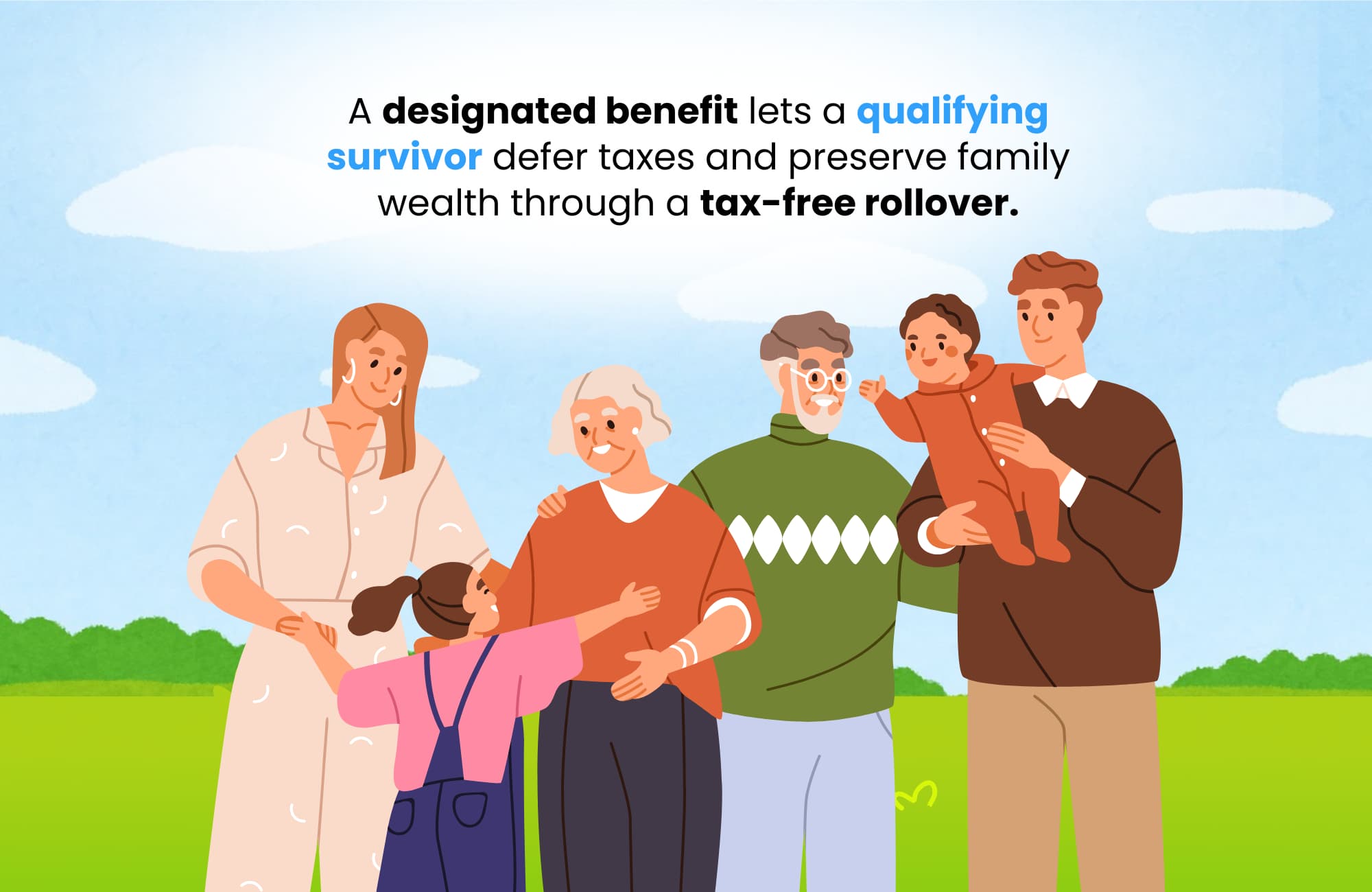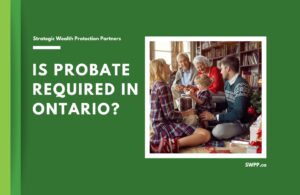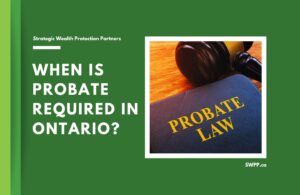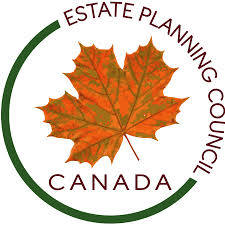Written by Ron Cooke, President & Founder of Strategic Wealth Protection Partners in Ontario, CEA®, Member of the Estate Planning Council Canada
How Much Tax Do You Pay on a RRIF at death?
There is no fixed tax rate on a RRIF at death.
Instead, the entire value of the RRIF is added to your income on your final tax return. It’s taxed at your personal marginal tax rate, which can range from 20% to over 50%, depending on your total income and province of residence. The more income you have, the higher the tax rate on your final tax return, which includes the taxes on the RRIF.
To be clear, you are taxed on the entire value of the RRIF at death, not just the capital gains.
This means the full fair market value (FMV) of all investments inside the RRIF is included as income on your final tax return, regardless of how much the investments have grown. It’s treated as fully taxable income, similar to a salary.
So, if your RRIF is worth $500,000 when you pass away, the whole $500,000 is added to your income in your final year—not just the investment gains.

Key Takeaways
- Tax deferral is possible with strategic planning and beneficiary selection
- RRIFs are taxed in full at death unless rolled over to a qualified beneficiary
- Naming a successor annuitant avoids immediate tax and probate
- RRIFs without a beneficiary go through probate and increase estate taxes
- A Will should coordinate with RRIF designations to manage tax properly
What Happens to Your RRIF When You Die?
In Ontario, when someone dies with a registered retirement income fund (RRIF), the full fair market value of the account is added as taxable income to their final tax return.
This can trigger a large tax bill, especially if there is no named spouse, common law partner, or financially dependent child to qualify for a tax-free rollover. If the RRIF goes to the estate, the estate must pay income tax on the amount and also face probate fees, reducing the inheritance for loved ones.
While some taxes are withheld during the person’s lifetime, they are rarely enough to offset the full tax liability due at death. Without proper planning, RRIFs can quickly shift from a retirement tool into a costly burden for your estate and heirs.
📖Related Read: How Much Can You Inherit Without Paying Taxes In Canada?
What Happens with Taxes on a RRIF Depends on Who Gets the RRIF
| Who Gets the RRIF | What Happens with Taxes |
|---|---|
| Your spouse is named as successor annuitant | RRIF just keeps going in their name. No taxes right away. They pay tax only when they take money out. |
| Your spouse is named as beneficiary | The full value is taxed, but they can move it into their own RRSP or RRIF to avoid immediate tax. |
| A dependent child or grandchild (minor or disabled) | The money can be transferred to certain accounts (like a Registered Disability Savings Plan) to delay tax. |
| Any other beneficiary (adult children, friends, etc.) | The full value is added to your final tax return and taxed at your usual tax rate. Your estate pays the tax. |
| No one is named | The RRIF goes into your estate. Your estate pays tax on the full value, and it might also face probate fees. |

What is a Successor Annuitant?
The successor annuitant is your spouse or common-law partner who is named to take over your RRIF when you die. This means:
- The RRIF keeps running in their name.
- No immediate taxes are owed.
- They’ll only pay tax when they take money out.
This is one of the most tax-efficient ways to pass on your RRIF.
💡 Helpful Tip:
- Tax Rate: It’s based on your total income in the year you die. So if your RRIF is large, it could push you into a higher tax bracket.
- Planning Ahead: Naming the right person (like a spouse as successor annuitant) can help keep more of your savings in your family’s hands, not with the CRA.
- Large RRIF or RRSP: Make sure you work with a qualified estate planning expert who can help you with tax planning and advanced estate planning strategies that keep your wealth intact.

How Are RRIFs Taxed When You Die?
When someone in Ontario dies with a registered retirement income fund (RRIF), the entire fair market value of that RRIF is included as taxable income on their final tax return.
It’s treated as if the account was fully cashed out the day before death, regardless of whether any funds were withdrawn. That lump sum is added to other income and can result in a large tax bill, especially if there are no planning measures in place.
Under the Income Tax Act, this can push the estate into the highest marginal tax bracket and significantly increase the overall tax liability.
Who Pays the Taxes on a RRIF After You Die?
Taxes on the RRIF are paid either by the estate or the beneficiary, depending on how the account was set up.
If no beneficiary is named, or if the RRIF goes to the estate, then the estate must pay income tax based on the full value reported on the T4RIF slip.
If a beneficiary is named, and they receive the funds directly, the Canada Revenue Agency may tax the beneficiary instead, unless a tax-free rollover applies. Timing and reporting are critical to ensure taxes are not accidentally paid twice.
Are RRIFs Subject to Probate and Estate Taxes?
Yes, if a RRIF is payable to the estate, it is subject to probate in Ontario.
This means the account’s value becomes part of the estate and increases probate fees, delays, and potential legal costs.
However, naming a qualified beneficiary such as a spouse, common law partner, or financially dependent child can help avoid probate entirely. This not only speeds up distribution but also keeps the RRIF outside the reach of creditors and the public probate process.
RRIF Successor Annuitant vs Beneficiary
There’s a critical difference between naming a successor annuitant and a beneficiary.
A successor annuitant only available to a spouse or common law partner, means that the surviving partner takes over the RRIF with no disruption and continues receiving the income. The RRIF stays intact, and no taxes are triggered at death.
A beneficiary, on the other hand, receives the lump sum value of the RRIF, and the tax responsibility depends on whether they qualify for a tax-free rollover or not. This difference can affect everything from cash flow to the estate’s tax liability.
Qualifying Survivor and Designated Benefit Rules
A qualifying survivor under the Income Tax Act includes a spouse, common law partner, or financially dependent child, particularly one who qualifies due to a physical or mental impairment.
These individuals may receive the RRIF as a designated benefit, allowing for a tax-free rollover to a registered retirement savings plan, another RRIF, or a registered disability savings plan. This postpones taxation and helps preserve wealth within the family.
Optional Reporting Elections for RRIF Income
There are special elections available that allow RRIF income to be reported on a beneficiary’s tax return instead of the estate.
This can lower the overall tax liability if the beneficiary is in a lower tax bracket than the deceased. These elections must be made carefully and documented according to the Income Tax Act rules.
It’s an effective tool for minimizing taxes if the right people are named and the right choices are made quickly after death.
Income Tax Deferral Strategies for RRIFs
Deferring taxes on a RRIF after death is possible but requires proactive planning.
Some of the most effective strategies include:
- Naming a spouse, common law partner, or financially dependent child as successor annuitant or qualified beneficiary
- Rolling over the RRIF into a registered disability savings plan if the child has a qualifying disability
These approaches delay taxation and preserve retirement savings for the next generation—without triggering an immediate taxable income event on the estate’s final tax return.
Planning Opportunities to Reduce RRIF Tax
Reducing RRIF taxes is all about timing and clarity.
Designate beneficiaries directly on the RRIF account to avoid probate and make sure your estate plan includes instructions on how to handle RRIF taxation.
Consider making strategic withdrawals in lower-income years to minimize future tax liability, or gifting from non-registered assets to leave more room for RRIFs in your marginal tax bracket. Charitable giving at death can also offset the RRIF’s tax burden.
Using Your Will Can Support RRIF Tax Planning
Your Will should reference RRIF-related taxes and clearly state how they are to be paid.
If it’s silent on this point, the estate may end up paying taxes on behalf of the RRIF recipient, unintentionally shortchanging other heirs. Aligning your RRIF designations with your Will ensures that everyone understands what’s being passed on and what’s being taxed.
This creates fairness, reduces family disputes, and limits surprises when emotions are already running high.

Common Questions about Taxes on a RRIF at Death
How can you withdraw from a RRIF without paying tax?
You can’t fully avoid tax, but a tax-free rollover to a qualifying spouse or dependent can defer it.
Do beneficiaries pay tax on money received from a RRIF?
Yes, unless they qualify for a tax-free rollover. Otherwise, the amount is fully taxable as income.
What are the disadvantages of a RRIF?
RRIFs are taxable at death and have minimum annual withdrawal rules that can increase income in retirement.
Is there a maximum tax on RRIF withdrawals?
There is no cap. Withdrawals are taxed as taxable income, and large amounts may be taxed at the highest rate.se H3 for the question, you must adjust the size in the right panel. Set to medium. And put as blue.
Discover How to Minimize Taxes and Secure Your Legacy
Did you know that without a solid estate plan, taxes and fees in Ontario could claim a significant portion of your wealth?
If you’ve worked hard to build your business, investments, and properties, protecting your legacy for your loved ones is critical. At Strategic Wealth Protection Partners, we specialize in helping high-net-worth individuals in Ontario secure their financial futures.
Our Living Estate Plan is designed to:
- Reduce estate taxes and probate fees.
- Simplify wealth transfer to your loved ones.
- Reflect your values and priorities in every detail.
Your Legacy Matters
With our personalized guidance, we’ll help you navigate options like Living Trusts to protect your assets and ensure your family’s peace of mind. Contact us today to book your Living Estate Plan Consultation and take the first step toward a secure future.
Schedule a Living Estate Plan Consultation
Planning your legacy is about more than numbers—it’s about ensuring your family remembers you and your values are honoured for many years to come.
Estate planning and trusts can feel overwhelming, especially if it’s your first time. That’s why we’re here.
With our simple, 5-Step Living Estate Plan, we make the process easy, helping you create a comprehensive estate plan or trust that protects your assets from taxes and probate fees while preserving your legacy. Tools like The Final Word Journal capture your story, wishes, and essential details like accounts and end-of-life plans, ensuring your family has clarity and comfort.
Take the first step today—schedule a consultation call and give your family the ultimate gift: peace of mind and the assurance they were always your priority.
Read More
If you’re starting your estate planning process, you may find these articles helpful:
- Is Inheritance Taxable in Canada?
- How to Avoid Estate Tax in Canada in 2025
- Estate Tax Canada Guide
- Death Tax Canada: How to Avoid a Surprise Tax Hit
About the Author
RON COOKE, PRESIDENT & FOUNDER OF STRATEGIC WEALTH PROTECTION PARTNERS

With over 30 years in financial services, I’ve seen the challenges families face when a loved one passes—lost assets, unnecessary taxes, and emotional stress. That’s why I created the Living Estate Plan, a comprehensive process to protect assets, eliminate estate and probate fees, and create legacies that are remembered for many years to come.
This plan ensures your family receives not just your wealth, but a meaningful reminder of your care and love. Tools like The Final Word Journal capture your story, wishes, and essential details, offering clarity and comfort during difficult times.
Your final gift should be more than money—it should be peace of mind, cherished memories, and an organized estate.
Schedule a Call
Schedule a 30-minute consultation call with Strategic Wealth Protection Partners.
Click HERE to schedule a consultation.









